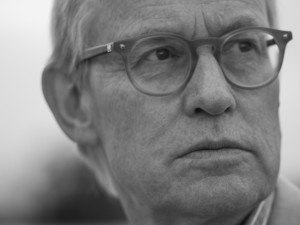05 November 2020
Does a French mayor have the solutions
for dealing with Islamic terrorism?
By Richard Pooley

Lucy Williamson, the BBC’s Paris correspondent, included this quote from a French radio interview in an article she wrote shortly after the beheading of history teacher Samuel Paty by a Chechen Muslim on 16 October:
“Last year, a student told me that it was completely legitimate to kill someone who failed to show respect to the Prophet [Mohammed].”
The speaker was Fatiha Agag-Boudjhalat, a teacher of history and geography at a college in Toulouse, who, like Paty, has used cartoons of Mohammed for years, together with cartoons of Donald Trump and Emmanuel Macron, to teach about the importance of freedom of expression in French society.
“It comes from what they hear in their families,” she went on.
Williamson gave the impression that Agag-Boudjhalat was an unknown teacher who had had the courage to condemn Paty’s murder as well as try to explain it. In fact, Agag-Boudjhalat is quite well-known and has already shown considerable bravery. The only girl among eight siblings, children of an immigrant housekeeper, she is that exotic rarity in France, a 40-year old Muslim feminist who has spoken out against Islamic extremism and argued fervently in favour of laïcité, the insistence in French law that religion is a private matter and must never enter public life, whether at school, in the workplace or in government. The usual translation – secularism – does not do justice to the importance of this concept to so many French people. Williamson was right when she said that “laïcité is central to France’s national identity. It’s as important as the concepts of ‘liberty, equality, fraternity’ “.
Agag-Boudjhalat’s words have stayed with me as I have listened and read the views of those in France who pontificated in the days after Paty’s murder, and again after three Christian worshippers were stabbed to death in Nice last Thursday. The reaction of these commentators and politicians has been depressingly familiar. They blame whichever politician they oppose, almost always President Macron, and demand action which is impossible to carry out – deport all Muslims who won’t accept French values (how many? where to?), stop all Muslims coming in (how? on what basis?), insist that every Muslim who has shown any leanings towards Islamic terrorism be watched night and day (so the French intelligence service is to become France’s largest employer?). Such actions would be an Allahsend to the fundamentalist imams who preach that laïcité promotes blasphemy and that the French State is the mortal enemy of all true Muslims.
One Muslim “thinker” (sic … very sick) was not prepared whilst on air to condemn these latest atrocities, instead saying it was all the fault of Macron, referring to the president’s “anti-Islam” rhetoric and “his war in Libya”. He went on to compare Paty’s demonstration of the Charlie Hebdo cartoons of Mohammed with the prize awarded at a photography contest in Nice in 2010 to a photograph of a man wiping his arse with the French flag. The photograph was published in the Metro freesheet, caused a lot of anger and, our Muslim intellectual insisted, resulted in two people losing their jobs. The point of this comparison was lost on me. Was he saying that the French state should have beheaded the photographer, the contest organiser or Metro’s editor for this abuse of the French Tricolour?
Islamic terrorism is essentially a home-grown problem in France (and the UK). As Agag-Boudjhalat said: “It comes from what they hear in their families”. And on social media and from some imams and extremist politicians. Paty was beheaded because the parents of one of his Muslim pupils mounted an online hate campaign against him, which was seen by his murderer, a Chechen Muslim who had lived in France since 2008, who then made contact with the help, it seems, of other extremists, including an imam.
But where are the people who are offering practical solutions to this home-grown problem? In all the uproar following these murders, many commentators have accused Macron of stirring hatred towards Muslims. His interview on 31 October on Al-Jazeera was regarded as especially inflammatory: “I can understand that people could be shocked by these cartoons, but I will never accept that violence is justified… I will always defend in my country the freedom to speak, to write, to think, to draw.” Do these commentators think that if Macron were to remain silent or to resign, the problem would go away?
In a speech delivered on 2 October, not far from where Paty was to be killed a fortnight later, Macron proposed solutions to combating “radical Islamism”, none of them quick, easy or without considerable cost. Some are carrots – money spent on educating French students on Islamic culture and the great contribution to science and the arts of early Islamic civilisation, and on improving housing and eradicating poverty in those areas with large Muslim populations. Others are sticks – more powers to local leaders to fight extremism, imams to be trained and certified as preachers in France, Islamic organisations found to be pushing ideas contrary to French values to be closed down, home schooling to be limited and better controlled.
In the past week, since the murders in Nice, another French politician has also proposed solutions, ones that he has been urging the French government to adopt ever since the massacre of 80 people and the mutilation of 458 others by a Tunisian immigrant in the same city on 14 July 2016. The politician is Christian Estrosi, the current mayor of Nice, who had only just stopped being mayor after eight years when that Tunisian drove a 19-ton lorry into the crowds celebrating Bastille Day over four years ago. Long-standing readers may recall that I urged the then French government of François Hollande to listen to what Estrosi was saying about how to tackle Islamic terrorism: “Why is so little attention being paid by French media to the extraordinary and commendable efforts Estrosi made to make Nice a safe city?”. If you have the patience and time, dear reader, have a look at On peut faire plus et on peut faire mieux.

Estrosi does not have all the answers. Some of his proposals would be too harsh for Macron to accept. Some would break existing French and EU law. After all, he is a member of the Republican party and hence to the right of Macron. But he has praised what Macron said in his speech of 2 October, the carrots as well as the sticks, and publicly appealed to him to work together with him and other big city mayors. Here is some of what he had to say in a TV interview on 30 October on how to deal with what he calls Islamofascism:
“[The power to do things] must be shared between the State and the mayors who have the will to act… We must quickly dissolve all the organizations attacking the values of the Republic. I ask that the mayors be given the power to do so… I want, as mayor, to be able to close a place of worship where I know that things are happening that are not in accordance with the values of the Republic… I want to be able to close a school when it does not respect the principles of the Republic… I have a surveillance camera network of 3,800 cameras but… successive governments keep telling me that we cannot use facial recognition, that I do not have the right to have the files of dangerous people present in my territory, or have the names and addresses of people refused asylum and who have not been sent home.”
His key message to central government on combating Islamofascism is the same as the one he has been giving them on dealing with Covid-19 for the past nine months: give more power, resources and data to us mayors. On the pandemic: we local leaders can organise a workable test, track and trace system far more effectively than you can in Paris. On Islamic terrorism: we local leaders know who the troublemakers are likely to be and how they operate better than you do in Paris; we know what deradicalisation programme has the most chance of success in our area.
Sound familiar, British readers? Localism is on the rise in France, just as it now is in the UK. Will Macron and his ministers accept this and, in particular, work with Estrosi to find solutions to the deep-seated, France-grown problem of Islamic terrorism?

